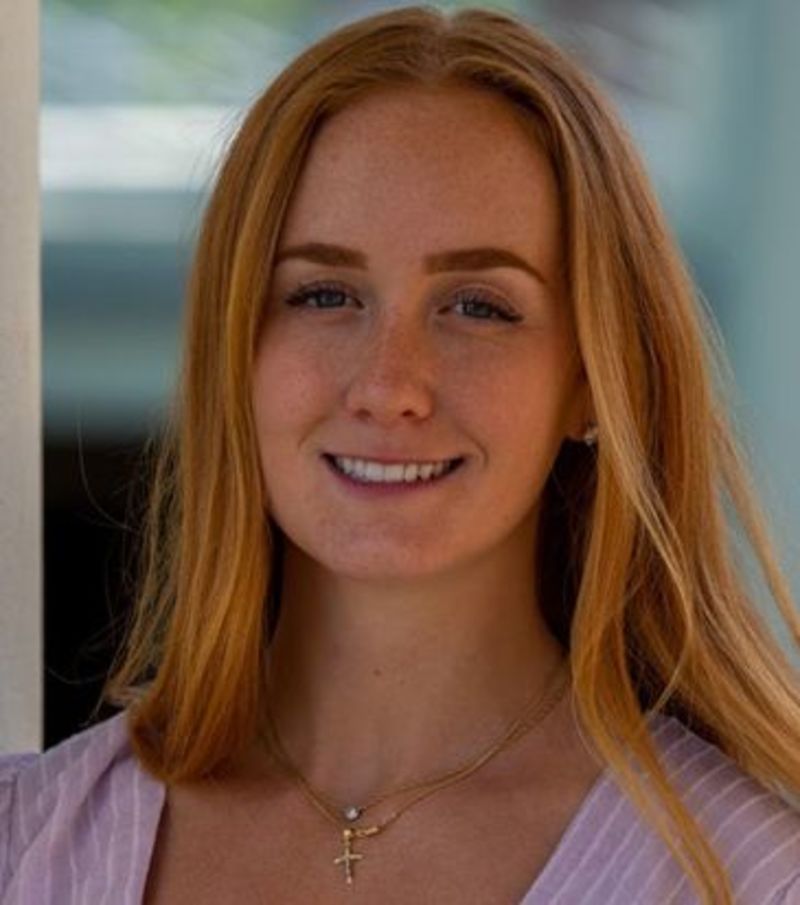
Julia Molodow (A&S '21, M.S. in Commerce '23)
MBI, Summer 2021
How did you first learn about MBI and what prompted you to enroll in the program?
I first learned about the MBI summer program from one of my brother’s best friends, Justin. Justin is two years older than I am, and we both majored in Foreign Affairs as undergrads. He did this program immediately after his graduation, and shared how helpful it was to gain business insight before entering into the “real world.” Since I knew nothing about business, I strongly considered applying. A few months prior to graduation, I was not sure if a career involving Foreign Affairs was a good fit for me, so I applied to the MBI summer Business Fundamentals program.
Which business concept(s) were you most eager to learn about?
I was most excited to learn about marketing. I took a lot of Sociology classes as an undergrad and was very interested in the way people interact in society. This drew me to marketing because businesses have to understand their customers’ preferences in order to be appealing and competitive in the marketplace. As consumers, we are drawn to products and services based on price, quality, features, location, etc., and it is the company’s job to be the best fit for their consumer, which involves a deep understanding of their wants and needs. I wanted to learn more about how consumers make choices, and how brands work to understand their customers and strategize to appeal to consumers.
Which business concept(s) challenged you the most?
Finance and Accounting challenged me the most. I did not take a single Math class in college, and, frankly, I hoped I would never have to again. These classes were the most difficult for me because I am not good with numbers, and never have been, so it was daunting right off the bat. However, I honestly felt accomplished at the end of these classes. They were difficult and challenged me daily, but in a way that allowed me to realize that liberal arts majors can also learn and master the hard skills that finance and accounting teach.
What is the most practical concept(s) or take away you learned from the program? How have you applied this in your current role?
The most practical concept I learned, which will probably sound cliché, is to ask questions. I did this program immediately after I completed my undergraduate degree at UVA. My classes undergrad were taught in huge lecture halls with 100-plus people, and I never asked questions during lecture. It was just a given that if I did not understand something, I would teach it to myself after class when I got home. However, this program highly encouraged professor-student engagement and being curious, which aided in my learning process and allowed me to be more present in that moment. Instead of getting lost halfway through and being somewhat confused for the rest of the lecture, professors in this program took the time to make sure every student felt confident with the material before progressing forward. My most practical take away from this program is do not be afraid to ask questions.
What was the focus of your MBI Capstone project, and what did you learn from the experience?
Our MBI Capstone project focused on improving the financial position of McDonald’s. From this experience, my biggest learning takeaway dealt with teamwork. The members of my team all had different undergraduate majors (Economics, Commerce, Computer Science, English, and Politics), so we each had different strengths we brought to the table. I never had group work or team projects as an undergrad, so this was a new academic experience for me. I learned how to approach and solve problems from different angles I never would have thought of on my own. I was also challenged because my ideas were analyzed and critiqued (they were not when I was working individually on papers in undergrad). Overall, I learned to be a better student and team member from this experience, and this is the main reason why I applied to get my M.S. in Commerce here at UVA.
How conducive was the program structure and format to your schedule?
The program is full time for a month, so you essentially have to plan to be in the building from about 9 a.m. to 4 p.m., Monday through Friday (with a lunch break included, of course). This worked out fine for me because this was my only commitment at the time. It also helped me become more of a morning person by getting up and exercising before class so that I could come home and relax afterwards. It is very manageable.
Did you find the time commitment and assignments to be manageable?
Yes, the time commitment and assignments were manageable. The professors would allot class time for many of the assignments (partner/group work). The only very large, time-consuming project we had was the Capstone project at the end of the program. However, this was doable because we were in a group, so all of us were in it together. As far as the daily schedule, it is essentially a full-time commitment for a month. I knew this going in, so that was not incredibly difficult or surprising to me. The only adjustment I had was I was coming out of a year full of Zoom classes, and this program was in person. It was different to be back in person, but it enhanced my learning experience so much.
- Undergraduate Degree Foreign Affairs
- Undergraduate Institution University of Virginia